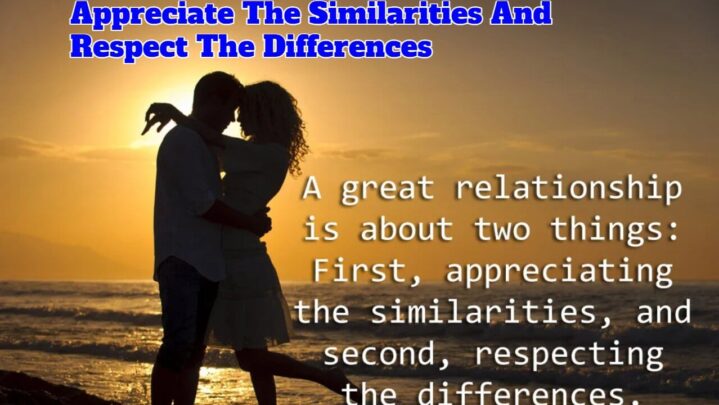Essential principles that promote harmony, comprehension, and inclusivity in our diverse environment include appreciating the similarities and accepting the differences. Even though individuals may have various histories, upbringings, worldviews, and life experiences, recognizing the similarities and contrasts among them can foster respect for one another, empathy, and a greater understanding of variety.
The things that unite us as people are the things we have in common. Even though we are all different, we still possess fundamental human traits, including emotions, wants, and aspirations. Love, joy, and contentment are things that we all yearn for. A culture of tolerance and compassion can be fostered by realizing these similarities, increasing one’s empathy for and understanding of others.
Respecting diversity also recognizes and values the distinctive qualities that make each person unique. Our individuality and the variety we provide to our communities through our distinctions in race, ethnicity, religion, gender, sexual orientation, and skills. Accepting these differences can help us fully appreciate variety, extend our viewpoints, and foster tolerance and acceptance.
Respecting differences while appreciating similarities is mutually beneficial. It entails accepting that, while having various views, values, and opinions, we may live in harmony and with mutual respect. It involves conversing with an open mind, paying attention to what others are saying, and being eager to learn from many viewpoints. Encouraging equality and inclusivity also entails speaking out against bias, prejudice, and discrimination.
It is essential for creating a healthy and inclusive society to recognize the similarities and accept the diversity among people. Along with encouraging tolerance and respect for one another, it promotes empathy, understanding, and acceptance. We can build a world where everyone feels appreciated and respected regardless of differences by embracing our common humanity and our distinctive individuality.





